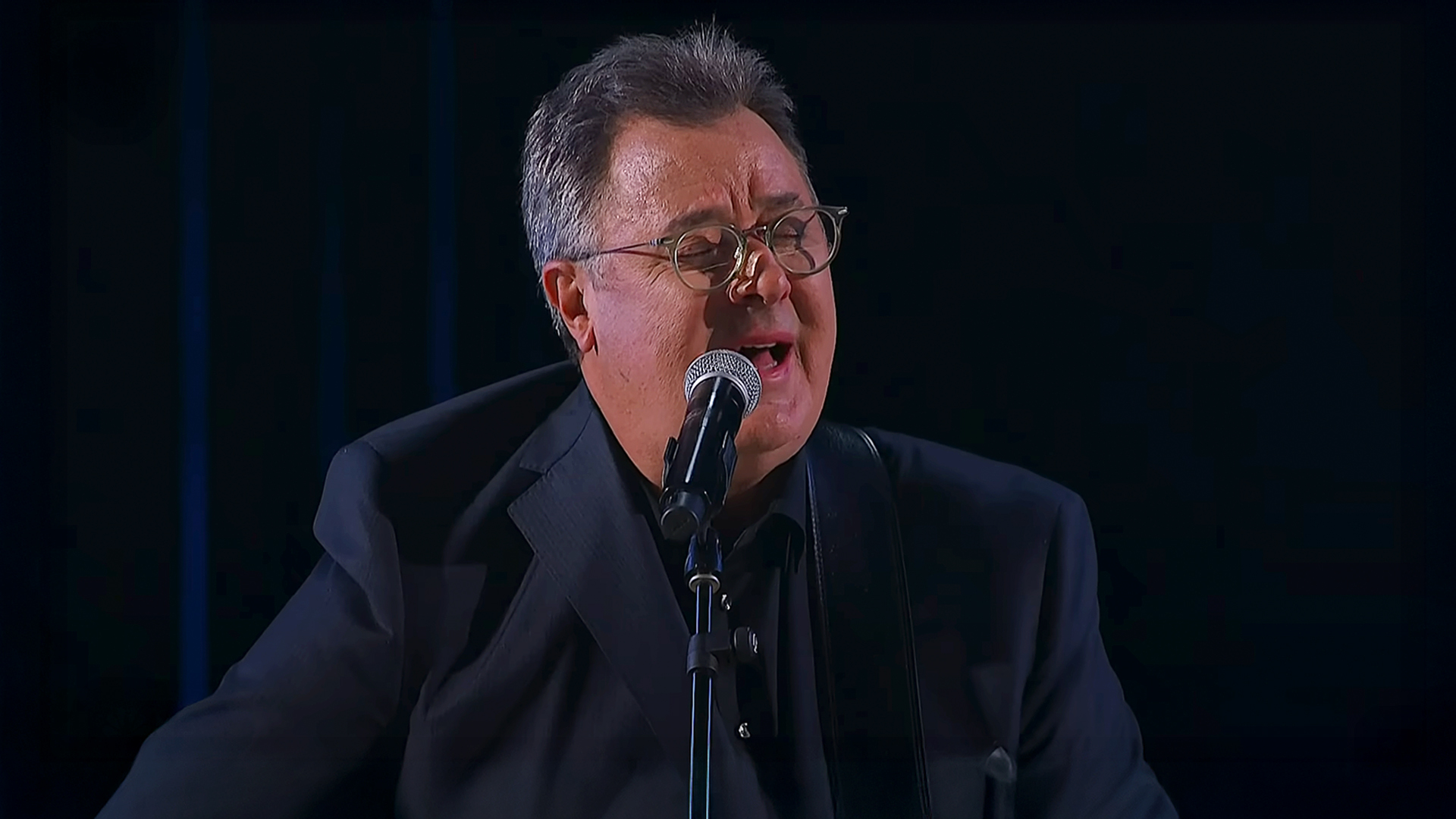When Vince Gill took the stage with Don’t Let Our Love Start Slippin’ Away, his voice soared with a purity that could hush even the rowdiest crowd, yet fans were left furious that Rolling Stone somehow failed to place him among the greatest singers of all time; how could the man whose tone blends country, soul, and soft rock with effortless grace be missing from a list that claims to define music history? The audience that night wasn’t just clapping for a song, they were bearing witness to one of the last true craftsmen of melody, a voice that carries the weight of heartache and the comfort of home; whispers spread through the crowd that Vince was more than a singer — he was a bridge between genres, a reminder of what music used to feel like before charts and algorithms; some swore they saw band members themselves wiping away tears, struck by the beauty of something timeless; and in that silence between verses, it became clear that no magazine ranking could ever measure the greatness that hung in the air.

The anger behind the applause

As the audience erupted in applause, the cheers carried something more than admiration — they carried defiance. How could a voice this timeless, this effortless, be missing from a list that claimed to define music history? To those in attendance, it felt less like recognition of a single performance and more like a collective protest against an oversight. Every syllable Gill sang seemed to underline the absurdity of rankings that overlooked artistry in favor of trend. His voice was not chasing charts; it was carving its own legacy in real time.
In the crowd, whispers spread that Vince Gill was more than just a singer — he was a bridge between genres, a living link to a musical tradition that existed before algorithms and market metrics decided what mattered. Some swore they saw band members themselves wiping away tears, struck not by spectacle but by sincerity. There was no trick, no polish, no gimmick; only a voice that could make heartache sound like a hymn and turn comfort into an art form. In that silence between verses, it became clear that the greatness in the room could never be captured by a magazine headline.

By the time the last note faded, the audience knew they had witnessed something bigger than a concert. This wasn’t about a place on a list — it was about the undeniable truth of a craftsman who has carried melody with devotion for decades. Rolling Stone may have overlooked him, but the people who stood in that room felt what no ranking could quantify. Vince Gill’s greatness was written not on paper, but in the air, lingering like a prayer after the music stopped. For those who were there, the memory remains unshakable: no list can define him, because true artistry defines itself.
